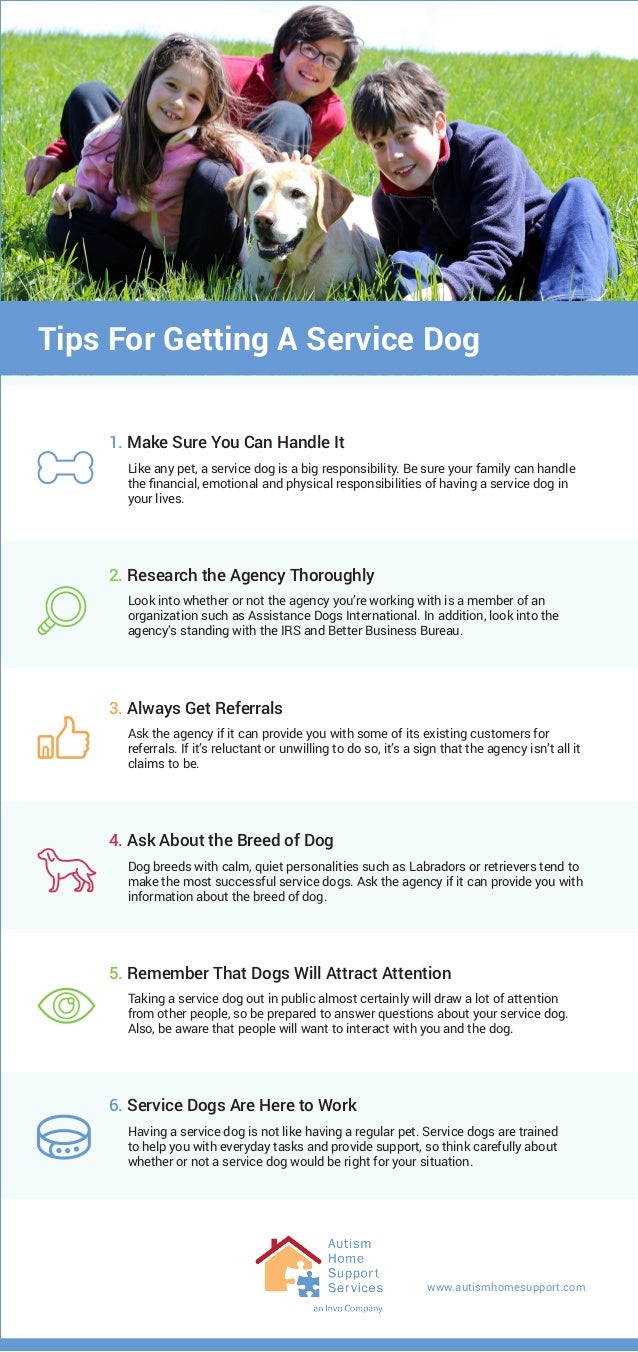Trained to assist a person who has a disability, service dogs are increasingly used to provide aid for children with autism. Service dogs receive behavioral training to perform tasks and accomplish activities of daily living, which can have a significant impact both mentally and physically on a child with an autism spectrum disorder. The dogs are taught to stop at doorways, follow commands from parents, use their weight to slow or stop a child and more. If you’re thinking about investing in a service dog, there are several ways they can positively impact a child with autism.
They Make Social Situations Easier
Service dogs can help children on the autism spectrum navigate social settings, especially in school, by acting as a focal point and fostering connections with classmates. This can reduce a child’s feelings of isolation and help facilitate conversation. The child is likely to develop linguistic skills even if the verbal exchanges are mundane.
They Serve as a Teaching Tool
A trained four-legged friend can serve as a model for learning empathy and body language. Parents can help their child understand the dog’s non-verbal cues, which in turn can lead to reading the facial expressions and body language of others. A child can develop empathy by taking care of the dog, brushing its fur, feeding it and putting on its harness and leash.
They Help Soothe Meltdowns
An autism service dog can anticipate if a child is about to throw a tantrum and alleviate the situation by distracting him or her. If their child starts crying, parents can instruct the dog to place its head in the child’s lap and encourage him or her to stroke its fur. This can soothe the child and prevent the situation from escalating.
They Enhance Physical Safety and Security
A service dog can help keep the child safe. It can prevent him or her from wandering away or bolting. At night the dog can alert parents if their child gets out of bed. Knowing a canine friend is looking out for their child can make parents’ lives easier and less stressful.
They Make Excellent Companions
When a child spends hours each day with a canine friend, the two are likely to develop a strong bond. Not only is the service dog a physical link for the child, but the two can also become emotionally linked as well. By having a furry companion to turn to in challenging moments, a child can learn to regulate emotions such as forgiveness, since a service dog has the natural capacity to forgive the child’s mistakes. When a child with autism sleeps near the service dog, he or she can rest easier and be comforted by the dog’s furry touch, especially if night terrors are a problem.
Though service dogs can be expensive, what they provide to children with autism is invaluable. They can truly have a life-changing impact on their young charges while benefiting the rest of the family in the process.

Infographic provided by Autism Home Support Services
Author bio: Shelly Andrews is Director of Marketing at Autism Home Support Services — a leading provider of ABA therapy in Chicago, Denver, and Detroit for children with autism spectrum disorders (ASD). The company’s mission is to provide quality, evidence-based therapy and counseling to children with ASD and their families in the home.



Connect With Me !